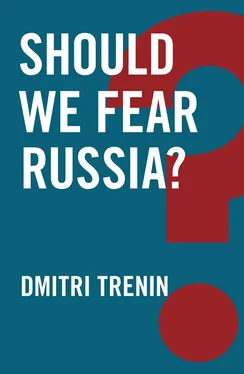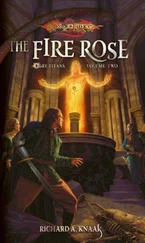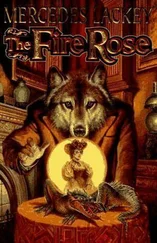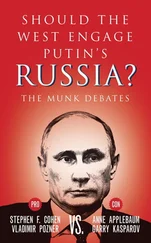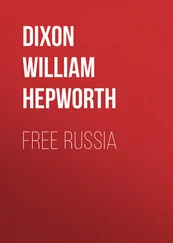Whereas the challenge to the West regarding Russia is essentially a foreign policy issue, the challenge facing Russia in its stand-off with the West is overwhelmingly a domestic one. The real battlefield for Moscow is neither Ukraine nor Syria, but Russia itself. How Moscow manages the crisis and whether it succeeds in putting the country on a development trajectory will crucially depend on the Russian elites. So far, they have been found lacking. The question is whether they can rise to the challenge of relaunching the Russian economy. Should they fail, Russia’s future certainly looks bleak.
There is a small library of literature on present-day Russia and its foreign policy. Much of it is devoted to the person of Vladimir Putin. Quite a few books are obviously polemical, and many are superficial. I will supply the reader with a reasonably short list of titles, which, I should add, with just one exception, depict the difficult relationship between Russia, on the one hand, and the United States and Europe, on the other, from a Western standpoint.
Serious works on the issue of relations between Russia and the West include Georgetown University Professor Angela Stent’s treatise on the US–Russian relations, The Limits of Partnership: US–Russian Relations in the Twenty-First Century (Princeton University Press, 2014), which appeared on the eve of the Ukraine crisis, and Columbia University Professor Emeritus Robert Legvold’s Return to Cold War (Polity, 2016).
Specifically on this seminal crisis, I would recommend Conflict in Ukraine: The Unwinding of the Post-Cold War Order , by Lehigh University’s Rajan Menon and my Carnegie colleague Eugene Rumer (MIT Press, 2015); Kent University Professor Richard Sakwa’s Frontline Ukraine: Crisis in the Borderlands (I. B. Tauris, 2015); British researcher Andrew Wilson’s Ukraine Crisis: What it Means for the West ; and veteran journalist and Brookings scholar Marvin Kalb’s Imperial Gamble: Putin, Ukraine, and the New Cold War (Brookings Institution Press, 2015).
On the wider issue of Moscow’s foreign policy, I would recommend Andrei P. Tsygankov’s Russia’s Foreign Policy: Change and Continuity in National Identity (4th edn, Rowman & Littlefield, 2016) and Jeff Mankoff’s Russian Foreign Policy: the Return of Great Power Politics (Rowman & Littlefield, 2011). Another notable recent contribution to the body of research is Nicolas Gvosdev and Christopher Marsh’s Russian Foreign Policy: Interests, Vectors, and Sectors (Sage, 2014).
Great background reading is Dominic Lieven’s Empire:The Russian Empire and its Rivals (Yale University Press, 2001); Walter Laqueur’s Putinism: Russia and its Future with the West (Thomas Dunne, 2015); and Charles Clover’s Black Wind, White Snow: The Rise of Russia’s New Nationalism (Yale University Press, 2016).
POLITY END USER LICENSE AGREEMENT
Go to www.politybooks.com/eulato access Polity’s ebook EULA.
“No one is a wiser, more sophisticated, more subtle or more balanced student of Russian foreign policy than Dmitri Trenin. No one, anywhere. So, should the West fear Russia? His answer is, yes, but for reasons that are different and vastly more complex than the reasons driving the discourse in the West. US and European leaders will not get their policy toward Russia right until they come to terms with the arguments in this book.”
Robert Legvold, Columbia University, and author of
Return to Cold War
“Dmitri Trenin makes a clear and compelling case that Russia’s Realpolitik may become more realistic and argues that the West should fear its weakness more than its strength. Trenin’s voice of reason makes an important and hopeful contribution to the current policy debate.”
Joseph S. Nye, Jr., University Distinguished Service Professor, Harvard University, and author of
Is the American Century Over?
“Dmitri Trenin is one of the most lucid analysts of Russia writing today. In this short but rich volume, he traces the recent history of misguided policy and conflicts of interest that have produced the current sharp deterioration in relations between Russia and the West. A ‘new normal’ has emerged, he argues. It is not a second Cold War but a period of new challenges and opportunities, in which seeing Russia clearly is critical to peace and security. To that end, there is no better place to start than this present essay.”
Thomas Graham, Managing Director, Kissinger Associates, and former Senior Director for Russia on the US National Security Council staff
Mohammed Ayoob, Will the Middle East Implode?
Christopher Coker, Can War be Eliminated?
Howard Davies, Can Financial Markets be Controlled?
Jonathan Fenby, Will China Dominate the 21st Century?
Andrew Gamble, Can the Welfare State Survive?
David Hulme, Should Rich Nations Help the Poor?
Joseph S. Nye Jr., Is the American Century Over?
Tamara Sonn, Is Islam an Enemy of the West?
Jan Zielonka, Is the EU Doomed?
Copyright © Dmitri Trenin 2016
The right of Dmitri Trenin to be identified as Author of this Work has been asserted in accordance with the UK Copyright, Designs and Patents Act 1988.
First published in 2016 by Polity Press
Polity Press
65 Bridge Street
Cambridge CB2 1UR, UK
Polity Press
350 Main Street
Malden, MA 02148, USA
All rights reserved. Except for the quotation of short passages for the purpose of criticism and review, no part of this publication may be reproduced, stored in a retrieval system, or transmitted, in any form or by any means, electronic, mechanical, photocopying, recording or otherwise, without the prior permission of the publisher.
ISBN-13: 978-1-5095-1094-8
A catalogue record for this book is available from the British Library.
Library of Congress Cataloging-in-Publication Data
Names: Trenin, Dmitri, author.
Title: Should we fear Russia? / Dmitri Trenin.
Description: Malden, MA : Polity Press, 2016. | Series: Global futures series | Includes bibliographical references.
Identifiers: LCCN 2016015429 (print) | LCCN 2016026584 (ebook) | ISBN 9781509510900 (hardback) | ISBN 9781509510917 (pbk.) | ISBN 9781509510931 (Mobi) | ISBN 9781509510948 (Epub)
Subjects: LCSH: Russia (Federation)--Foreign relations. | Russia (Federation)--Military policy. | Russia (Federation)--Foreign relations--Western countries. | Western countries--Foreign relations--Russia (Federation)
Classification: LCC JZ1616 .T74 2016 (print) | LCC JZ1616 (ebook) | DDC 327.47--dc23
LC record available at https://lccn.loc.gov/2016015429
The publisher has used its best endeavours to ensure that the URLs for external websites referred to in this book are correct and active at the time of going to press. However, the publisher has no responsibility for the websites and can make no guarantee that a site will remain live or that the content is or will remain appropriate.
Every effort has been made to trace all copyright holders, but if any have been inadvertently overlooked the publisher will be pleased to include any necessary credits in any subsequent reprint or edition.
For further information on Polity, visit our website:
politybooks.com
Robert Gates, Duty: Memoirs of a Secretary at War. New York: Alfred Knopf, 2014, p. 157.
Читать дальше
